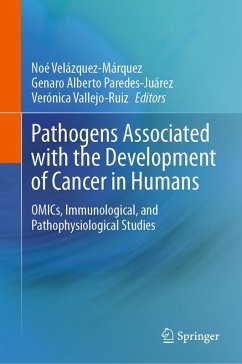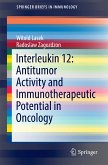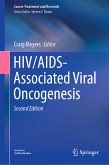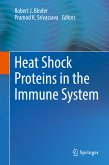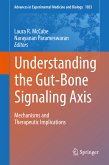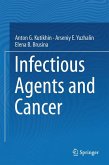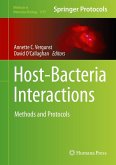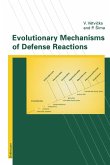Pathogens Associated with the Development of Cancer in Humans (eBook, PDF)
OMICs, Immunological, and Pathophysiological Studies
Redaktion: Velázquez-Márquez, Noé; Vallejo-Ruiz, Verónica; Paredes-Juárez, Genaro Alberto


Alle Infos zum eBook verschenken

Pathogens Associated with the Development of Cancer in Humans (eBook, PDF)
OMICs, Immunological, and Pathophysiological Studies
Redaktion: Velázquez-Márquez, Noé; Vallejo-Ruiz, Verónica; Paredes-Juárez, Genaro Alberto
- Format: PDF
- Merkliste
- Auf die Merkliste
- Bewerten Bewerten
- Teilen
- Produkt teilen
- Produkterinnerung
- Produkterinnerung

Hier können Sie sich einloggen

Bitte loggen Sie sich zunächst in Ihr Kundenkonto ein oder registrieren Sie sich bei bücher.de, um das eBook-Abo tolino select nutzen zu können.
This book examines the relationship between the different infectious agents, such as viruses, bacteria, protozoa, and fungi, in the development of cancer. It is divided into six sections, spanning a range of topics, including infectious agents, main bacterial agents, and eukarotic microorganisms, and how they contribute to cancer. Chapters also explore the anti-tumor effect of microorganisms, how pathogens induce epigenetic changes that are associated with cancer, and nutritional management for the prevention and treatment of pathogen-associated cancer, from a nutrigenomics perspective. The…mehr
- Geräte: PC
- ohne Kopierschutz
- eBook Hilfe
- Größe: 42.06MB
![Interleukin 12: Antitumor Activity and Immunotherapeutic Potential in Oncology (eBook, PDF) Interleukin 12: Antitumor Activity and Immunotherapeutic Potential in Oncology (eBook, PDF)]() Witold LasekInterleukin 12: Antitumor Activity and Immunotherapeutic Potential in Oncology (eBook, PDF)40,95 €
Witold LasekInterleukin 12: Antitumor Activity and Immunotherapeutic Potential in Oncology (eBook, PDF)40,95 €![HIV/AIDS-Associated Viral Oncogenesis (eBook, PDF) HIV/AIDS-Associated Viral Oncogenesis (eBook, PDF)]() HIV/AIDS-Associated Viral Oncogenesis (eBook, PDF)73,95 €
HIV/AIDS-Associated Viral Oncogenesis (eBook, PDF)73,95 €![Heat Shock Proteins in the Immune System (eBook, PDF) Heat Shock Proteins in the Immune System (eBook, PDF)]() Heat Shock Proteins in the Immune System (eBook, PDF)121,95 €
Heat Shock Proteins in the Immune System (eBook, PDF)121,95 €![Understanding the Gut-Bone Signaling Axis (eBook, PDF) Understanding the Gut-Bone Signaling Axis (eBook, PDF)]() Understanding the Gut-Bone Signaling Axis (eBook, PDF)121,95 €
Understanding the Gut-Bone Signaling Axis (eBook, PDF)121,95 €![Infectious Agents and Cancer (eBook, PDF) Infectious Agents and Cancer (eBook, PDF)]() Anton G. KutikhinInfectious Agents and Cancer (eBook, PDF)73,95 €
Anton G. KutikhinInfectious Agents and Cancer (eBook, PDF)73,95 €![Host-Bacteria Interactions (eBook, PDF) Host-Bacteria Interactions (eBook, PDF)]() Host-Bacteria Interactions (eBook, PDF)81,95 €
Host-Bacteria Interactions (eBook, PDF)81,95 €![Evolutionary Mechanisms of Defense Reactions (eBook, PDF) Evolutionary Mechanisms of Defense Reactions (eBook, PDF)]() Evolutionary Mechanisms of Defense Reactions (eBook, PDF)40,95 €
Evolutionary Mechanisms of Defense Reactions (eBook, PDF)40,95 €-
-
-
Dieser Download kann aus rechtlichen Gründen nur mit Rechnungsadresse in A, B, BG, CY, CZ, D, DK, EW, E, FIN, F, GR, HR, H, IRL, I, LT, L, LR, M, NL, PL, P, R, S, SLO, SK ausgeliefert werden.
- Produktdetails
- Verlag: Springer International Publishing
- Seitenzahl: 559
- Erscheinungstermin: 8. August 2024
- Englisch
- ISBN-13: 9783031625589
- Artikelnr.: 71441321
- Verlag: Springer International Publishing
- Seitenzahl: 559
- Erscheinungstermin: 8. August 2024
- Englisch
- ISBN-13: 9783031625589
- Artikelnr.: 71441321
- Herstellerkennzeichnung Die Herstellerinformationen sind derzeit nicht verfügbar.
